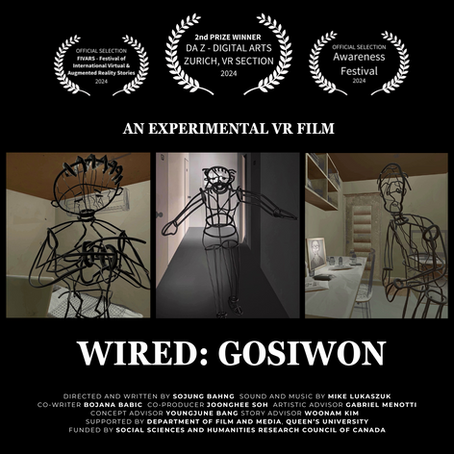Art-based research on reflective approaches to the metaverse
MetaMetaverse is a digital art-based research project exploring reflective approaches to the metaverse, funded by the Social Sciences and Humanities Research Council (SSHRC) in Canada and conducted at Queen's University, led by Dr. Sojung Bahng (Assistant Professor, Department of Film & Media).
The term "metaverse" was first coined by American writer Neal Stephenson in 1992 to describe a sophisticated virtual world optimized for social interaction. However, it gained renewed attention in 2021 when Facebook rebranded itself as Meta. This strategic shift signaled Meta's commitment to developing a digital ecosystem where individuals can connect and engage within immersive 3D virtual spaces, a trend further accelerated by the COVID-19 pandemic.
Due to its broadly defined and futuristic nature, the concept of the metaverse has increasingly been associated with envisioning the immersive future of the internet. This vision integrates emerging technologies such as Extended Reality (XR), blockchain, Web 3.0, and more, aiming to create interconnected virtual environments.
However, interest in the metaverse has encountered recent fluctuations within both industries and academia. Factors contributing to this include a gradual shift away from 3D virtual interactions in a post-pandemic world, heightened industry focus on advancing generative AI technologies, and ongoing uncertainties surrounding the practical implementation of the metaverse concept. These challenges suggest that the current iteration of the metaverse may be in a transitional phase, awaiting further technological advancements and conceptual clarity to fully realize its potential, or it may have been a temporary buzzword related to the COVID-19 pandemic.
Amidst this uncertainty, it is crucial to reflect on the essence of the metaverse: what is the metaverse, what it means to us, why it is interesting (or not interesting), what underlying instincts or desires drive its exploration (or even unexploration), and what are profound ethical, philosophical, and political inquiries related to the metaverse.
In the MetaMetaverse research-creation project, we aim to explore these questions through collaborative efforts with artists, technologists, and scholars. By harnessing the creative and analytical strengths of interdisciplinary collaboration, we aim to enhance our contextual and reflective understanding of the metaverse. Our findings will be presented through artworks and exhibitions that utilize metaverse-related technologies to provoke thought and engage with diverse audiences.

METAVERSE IS EMPTY
METAVERSE IS EMPTY is a conceptual framework that positions the metaverse as an empty signifier, lacking inherent meaning or substance, shaped by shifting technological, economic, and cultural projections. This approach examines the transient and illusory nature of the metaverse from sociocultural and philosophical perspectives, while also recognizing its potential as a space for collective creativity and alternative values. A series of projects and discourses will follow to further explore its implications and possibilities.
Projects






